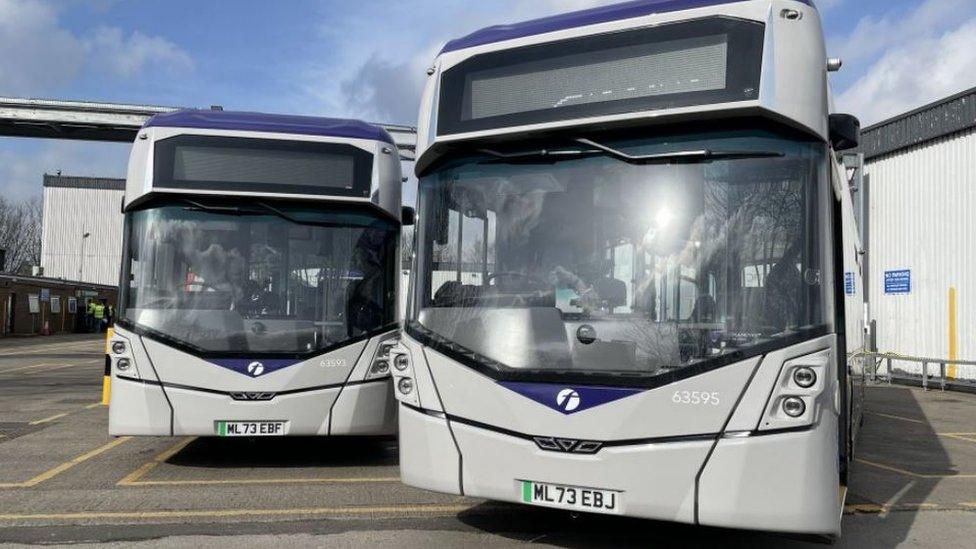Leeds buses: New electric fleet takes to the roads
- Published

Money for the switch to electric buses has come from both First Bus and the UK government
New electric buses have taken to the roads in Leeds in a "huge step forward" for the network, transport bosses said.
Fifty-seven battery-powered buses have entered service, with a range of up to 200 miles (322km) between charges.
West Yorkshire Combined Authority (WYCA) said it was part of a plan to have a fully zero-emission bus fleet throughout West Yorkshire by 2038.
Road traffic has been identified as a major source of air pollution in Leeds and Bradford.
Each electric bus costs around £350,000 with the whole project requiring £29m of funding, WYCA said.
Money for the switch-over from diesel to electric buses has come from both First Bus and the UK government.
'Another major step'
Andrew Cullen, Managing Director of First Bus in West Yorkshire, said: "Today marks another major step in the First Bus strategy to expand more zero-emission buses into communities in West Yorkshire and the country, as part of our mission to reach a zero-emission UK bus fleet by 2035."
The WYCA aims for buses across all operators to be emissions-free by 2038.
The new buses, which can be charged in two-and-a-half hours, have been manufactured by Wrightbus in Northern Ireland and feature audio-visual next stop technology and USB charging points.
Deputy Chair of WYCA's Transport Committee, Councillor Peter Carlill, said: "Work to electrify the Bramley bus depot is a huge step forward for the combined authority's vision of a green, zero-emission bus system for West Yorkshire.
"Having more of these buses on our roads will benefit areas affected by low air quality, as well as helping us to achieve our target of becoming a net-zero carbon region by 2038."
Double deckers are expected to join the fleet of single-decker buses in the summer.

Follow BBC Yorkshire on Facebook, external, Twitter, external and Instagram, external. Send your story ideas to yorkslincs.news@bbc.co.uk, external.